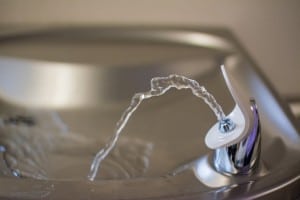 The recently convened UN High Level Panel of Water (HLPW) will, with its complement of Heads of State and Government and Special Advisors, seek to focus on a number of cross-cutting themes that will have a reach far beyond that of the traditional scope of water and sanitation interventions.
The recently convened UN High Level Panel of Water (HLPW) will, with its complement of Heads of State and Government and Special Advisors, seek to focus on a number of cross-cutting themes that will have a reach far beyond that of the traditional scope of water and sanitation interventions.
The objectives of the panel, as laid out, are to Motivate Effective Action and Advocate on Financing and Implementation in order to help countries to think about how we use and manage our water resources in an entirely different way and to aid them in attaining the Sustainable Development Goals (SDGs) that were agreed to recently.
Themes of the High Level Panel of Water
Together with the two main objectives, the HLPW has articulated the following themes on which it will focus, although it states that these themes may still evolve over the course of the Panel’s deliberations:
Water is Everyone’s Responsibility
Public health, food security, energy for all, liveable cities, environmental wellbeing, and climate action are all connected by water because water and hygienic sanitation are required for human dignity as well as for economic growth. While a whole-of-government approach must be taken as regards the management and delivery of water and sanitation services, the private sector, farmers and households also have to practice good water stewardship as the majority users of this precious commodity. Thus, better management and delivery must take place at all levels in order to create a sustainable future.
Sustainable Services for All
Globally, around 1.8 billion people use a drinking water source that is faecally-contaminated and approximately 2.4 billion individuals still do not have access to decent hygienic sanitation facilities. Access to potable water and hygienic sanitation services is crucial for human dignity, poverty eradication, liveable cities, as well as pollution prevention and economic growth. Many of those who do have access still have inadequate or unsustainable services, and the impact of this generally falls on the poorest of the poor and on women and girls. Access to water is everyone’s right and therefore bridging access gaps is everyone’s responsibility; specific services providers must provide decent city planning, education, and public health for all.
Valuing Our Water Right
As water becomes more and more scarce, it is even more critical that we value our water right by increasing the efficiency of our water use and reducing pollution. We need to value the human right to water in order to improve the fundamental welfare of all people, in particular the poor and women.
Investing in Water for the Long Run
Insufficient financing and inadequate infrastructure development has plagued the water sectors for decades, while urbanisation is occurring at unprecedented rates, necessitating the provision of more food amidst droughts and floods caused by climate change; this needs to change! It is time that all countries allocated sufficient funding for in well-designed multi-purpose and resilient infrastructure to provide burgeoning populations with sufficient access to quality water, sanitation, and irrigation services, flood protection, energy, and water storage as well as sufficient means of implementation, including financial, technological and developmental.
The Panel will focus on the two main objectives in order to make the requirements mentioned in the above themes a reality.
Get bottled water coolers and mains water coolers from Living-Water.





